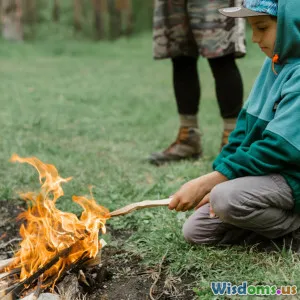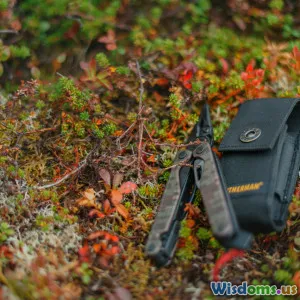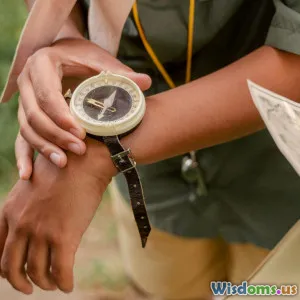
Outdoor Safety Tips for Adventurers
6 min read Essential safety tips to ensure a secure and enjoyable outdoor adventure. (0 Reviews)
Outdoor Safety Tips for Adventurers
Outdoor adventures can be exhilarating, offering a chance to connect with nature and challenge oneself physically and mentally. However, they also come with inherent risks. Preparing adequately and understanding safety protocols can mean the difference between a memorable experience and a dangerous situation. Here are some essential safety tips every adventurer should keep in mind.
1. Research Your Destination
Before heading out, familiarize yourself with the area you plan to explore. Check maps, weather forecasts, and any travel advisories. Understanding the terrain and climate conditions can help you prepare your gear and clothing appropriately. For instance, if you’re hiking in a mountainous region, knowing the elevation changes can prepare you for altitude sickness and the need for hydration.
2. Pack Essential Gear
While it might be tempting to pack light, there are certain essentials that you should never overlook:
- Navigation tools: A map and compass, or a GPS device, can help you avoid getting lost.
- First aid kit: A well-stocked first aid kit can address minor injuries and stabilize more serious ones until help arrives.
- Water and purification tablets: Staying hydrated is crucial in any adventure, and having a method to purify water can be a lifesaver.
- Food supplies: High-energy snacks like nuts, energy bars, or dried fruits will keep your energy levels up.
- Emergency shelter: A lightweight tarp or emergency space blanket can provide protection from the elements if you need to stay put.
3. Inform Someone of Your Plans
Always let a friend or family member know your itinerary before heading out. Include your expected return time and the route you’re taking. This way, if you encounter trouble, someone will know to look for you.
4. Understand Weather Conditions
Weather can change rapidly in the outdoors. Always check forecasts before your trip and be prepared for sudden changes. Dress in layers, so you can add or remove clothing as conditions dictate, and always have a rain jacket or poncho on hand.
5. Know Your Limits
While pushing your boundaries can be part of the adventure, understanding your physical limits is crucial. Be honest with yourself about your fitness level and experience. Choose trails or activities that match your ability, and don’t hesitate to turn back if the situation becomes too challenging.
6. Stay on Marked Trails
Venturing off-trail can lead to getting lost or damaging the local ecosystem. Stick to marked paths and trails, and be mindful of local wildlife. This not only ensures your safety but also helps preserve the natural environment.
7. Use the Buddy System
Whenever possible, explore with a partner or group. The buddy system not only enhances safety but also makes for a more enjoyable experience. In case of an emergency, having someone to assist you can be invaluable.
8. Be Aware of Wildlife
While wildlife encounters can be thrilling, they can also be dangerous. Learn about the local wildlife and how to react to different situations. For example, know how to store food to avoid attracting bears and how to respond if you encounter snakes or other potentially dangerous animals.
9. Practice Fire Safety
If your adventure includes campfires, ensure you understand fire safety practices. Always check fire regulations in your area, build fires in designated areas, and ensure all fires are completely extinguished before leaving.
10. Stay Calm in Emergencies
Despite your best preparations, emergencies can happen. If you find yourself lost or in danger, stay calm. Assess the situation and make a plan. Often, retracing your steps is the best course of action. If help is needed, use your whistle or other signaling devices to attract attention.
Conclusion
Outdoor adventures offer incredible opportunities for exploration and personal growth. By following these safety tips, you can ensure that your experiences are enjoyable and safe. Remember, preparation and knowledge are your best allies in the wilderness. So gear up, stay safe, and enjoy the great outdoors!
Rate the Post
User Reviews
Popular Posts





















